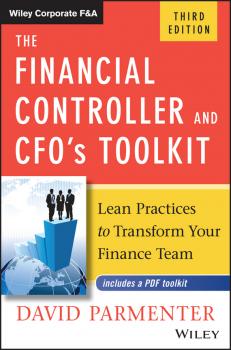Зарубежная образовательная литература
Различные книги в жанре Зарубежная образовательная литератураEssential Option Strategies
Learn the ins-and-outs of options trading with clear, practical guidance Essential Option Strategies is an introductory guide to options trading, designed to help new options traders better understand the market and the potential opportunities that exist. This book is designed to bring you up to speed with current practices and help you implement your own option trading strategies. You'll create a plan, track indicators, and understand underlying instruments, then apply that central investing knowledge directly to the options market. The discussion on pricing determinants and probabilities uses an intuitive approach to complex calculations, providing clear examples with no advanced math required, and extensive explanation of spreads, butterflies, and condors brings advanced strategies down to earth. Easy-reference appendices clarify the Greek terms and technical analysis charts, while focused discussion and expert insight throughout provide a highly informative crash course on options trading. Options trading has undergone a rapid evolution beyond stocks and commodities into asset classes including fixed-income, precious metals, energy, and more. This book helps you build a solid foundation in the fundamentals, giving you a knowledge base that applies no matter how the instruments change. This book is designed to help you: Understand the options market inside and out Avoid common mistakes Learn some basic positions, and trades Read charts and interpret probabilities Once the domain of the elites, the options market has been thrown wide open thanks to real-time price quotes, through brokerages, and the free flow of information online. The process of buying and selling options contracts is faster and more efficient than ever, and Wall Street is facing stiff competition from independent analysts and financial websites. As much as the market has changed, the fundamentals are the same—and Essential Option Strategies aims to provide expert guidance throughout the learning process.
The Effective Manager
“Make sure your students follow your instructions.” That sounds like a straightforward instruction, but in fact, it’s fairly abstract. What does a teacher actually have to do to make sure students are following? Even the leader delivering this direction may not know, and the first-year teacher almost certainly doesn’t. The vast majority of teachers are only observed one or two times per year on average—and even among those who are observed, scarcely any are given feedback as to how they could improve. The bottom line is clear: teachers do not need to be evaluated so much as they need to be developed and coached. In Get Better Faster: A 90-Day Plan for Coaching New Teachers, Paul Bambrick-Santoyo shares instructive tools of how school leaders can effectively guide new teachers to success. Over the course of the book, we break down the most critical actions leaders and teachers must enact to achieve exemplary results. Designed for coaches as well as beginning teachers, Get Better Faster is an integral coaching tool for any school leader eager to help their teachers succeed. It’s the book’s focus on the actionable—the practice-able—that drives effective coaching. By practicing the concrete actions and micro-skills listed here, teachers will markedly improve their ability to lead a class, producing a steady chain reaction of future teaching success. Though focused heavily on the first 90 days of teacher development, it’s possible to implement this work at any time. New and old teachers alike can benefit from the guidance of Get Better Faster and close their existing instructional gaps. Packed with practical training tools, including agendas, presentation slides, a coach’s guide, handouts, planning templates, and 35 video clips of real teachers at work, Get Better Faster will teach you: The core principles of coaching: Go Granular, Make Feedback More Frequent, Top action steps to launch a teacher’s development in an easy-to-read scope and sequence guide The four phases of skill building: Phase 1 (Pre-Teaching): Dress Rehearsal Phase 2: Instant Immersion Phase 3: Getting into Gear Phase 4: The Power of Discourse









